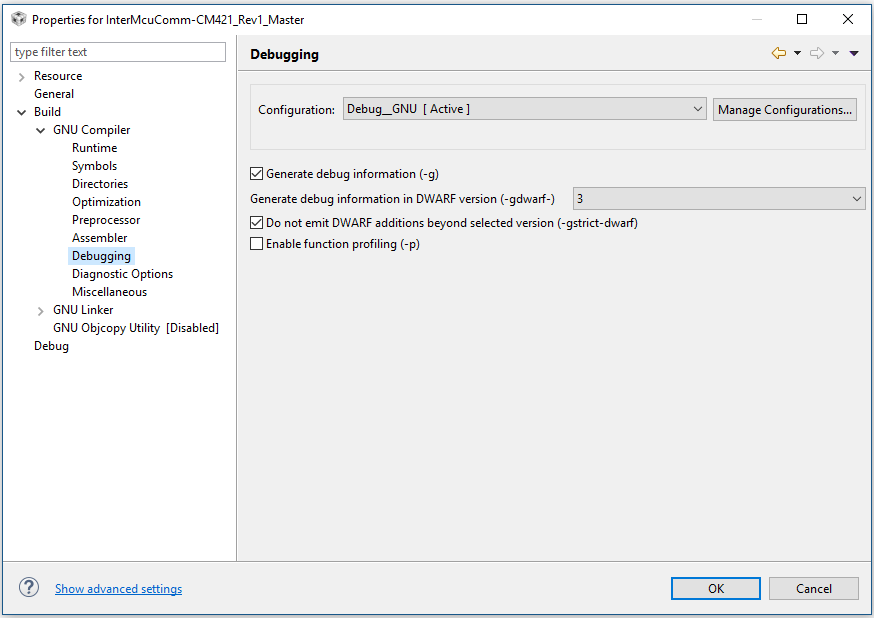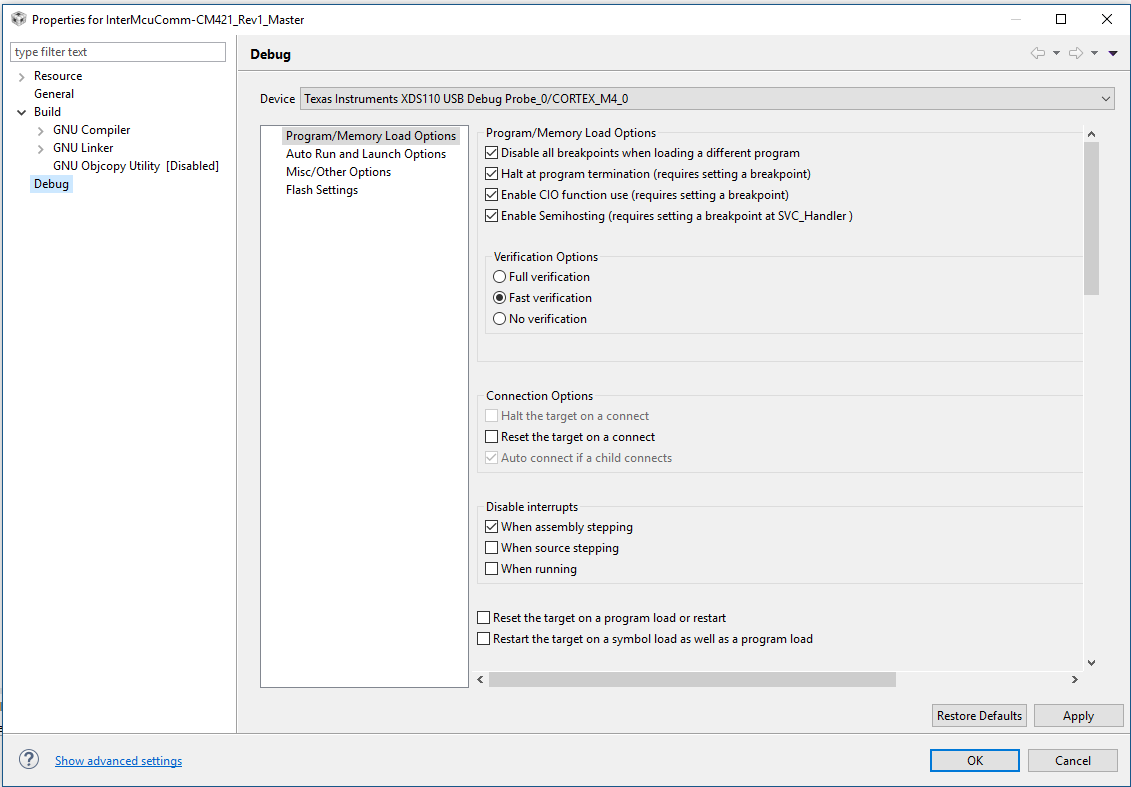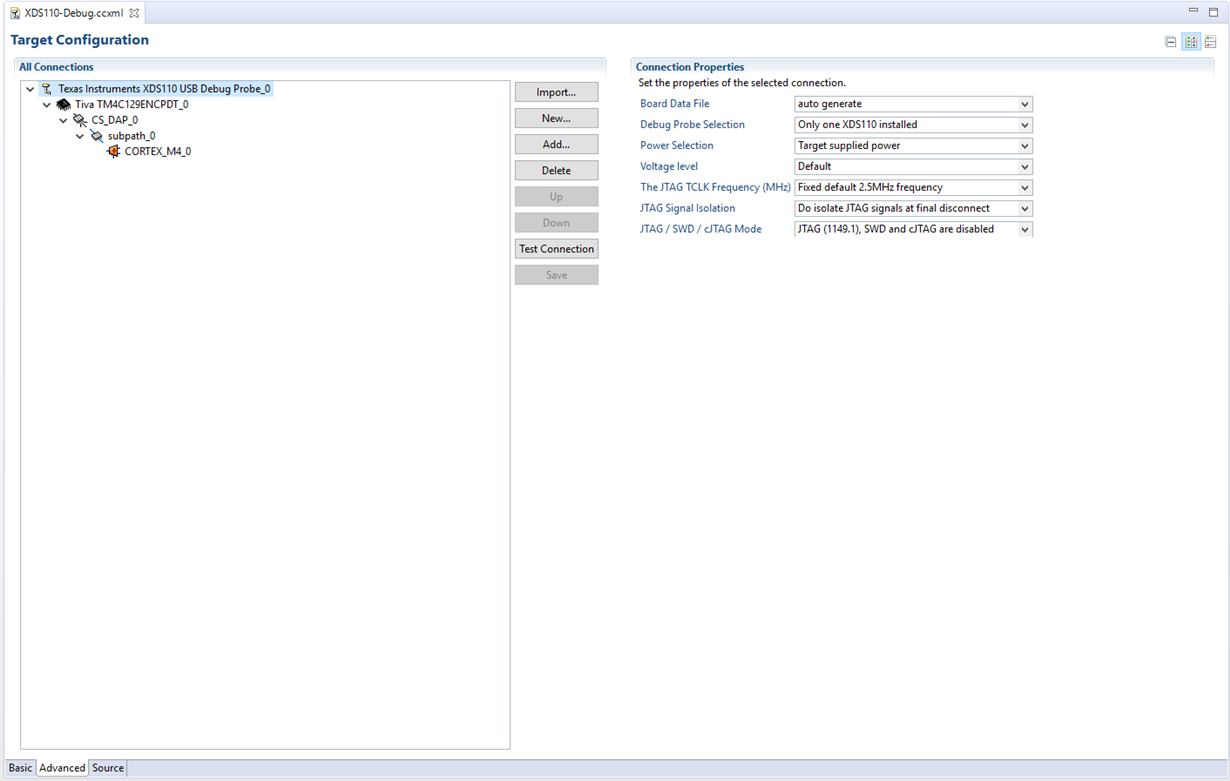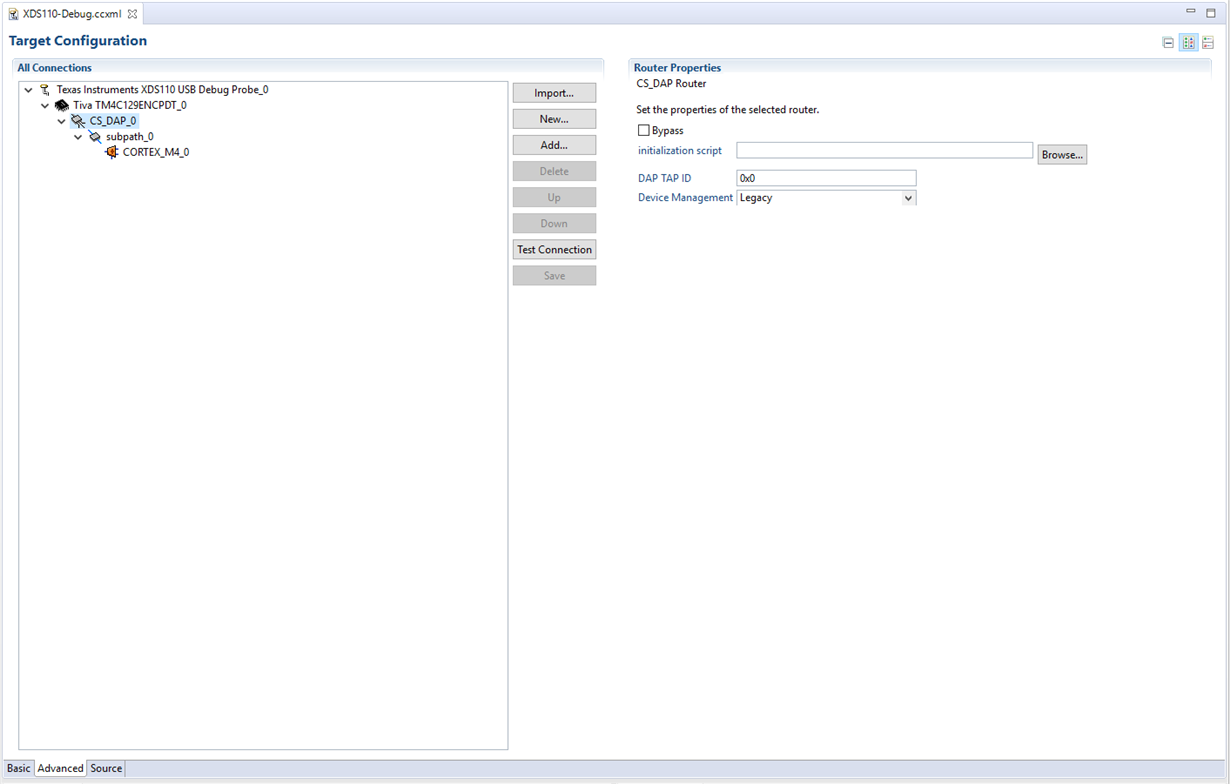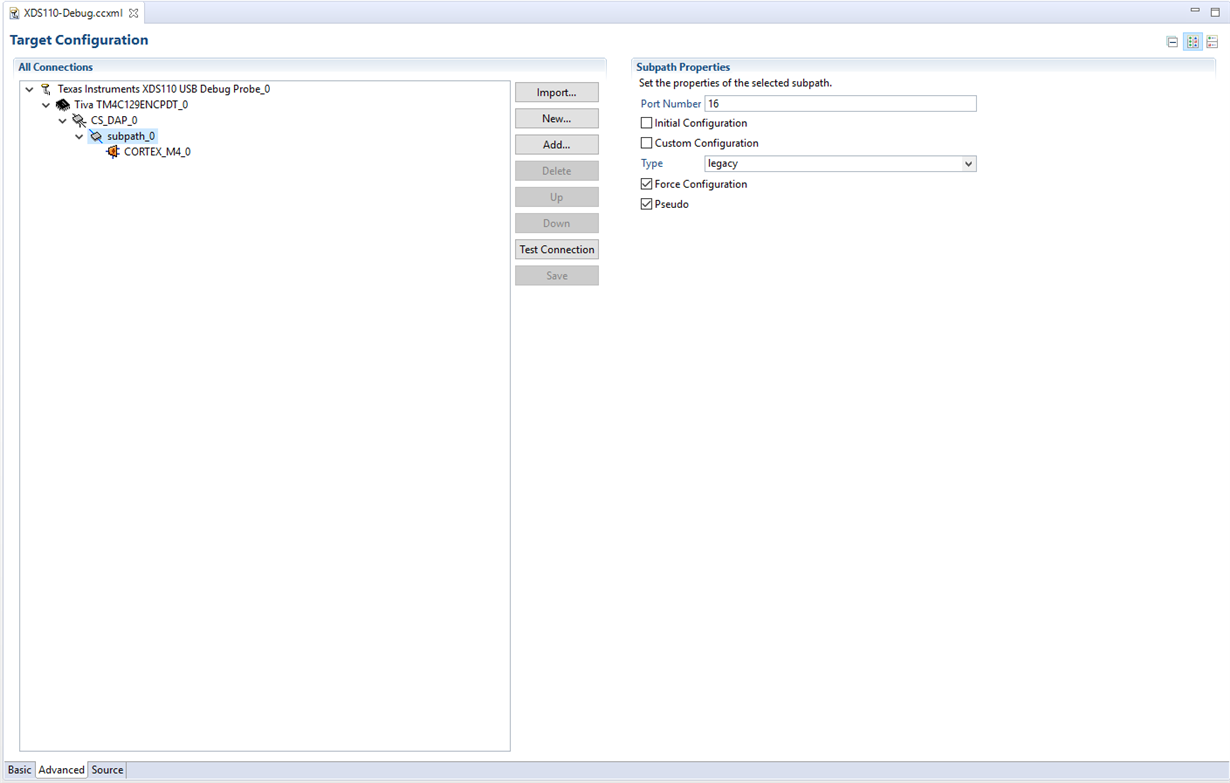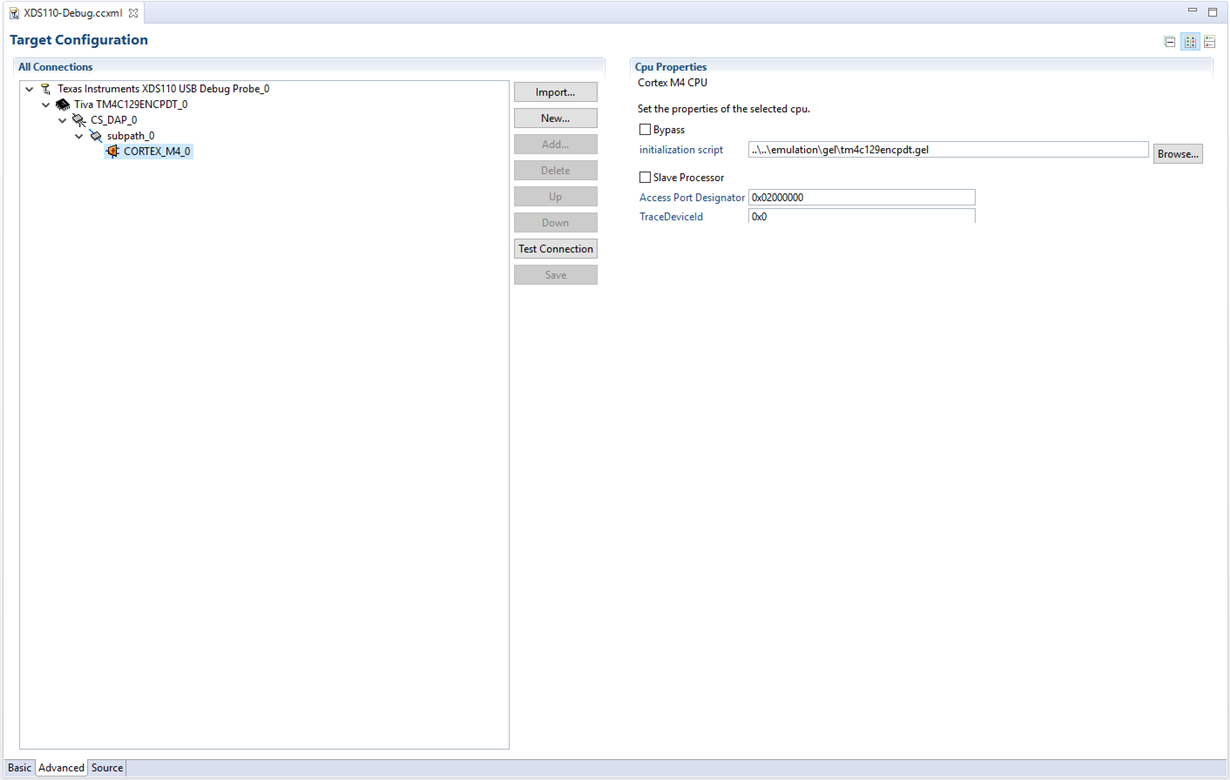Other Parts Discussed in Thread: EK-TM4C123GXL, , CC2640, SEGGER, CC1310, CC1350, CC3220SF, TM4C1294NCPDT, CC2640R2F, MSP432E401Y, TM4C123AH6PM, ALLIGATOR
Tool/software: Code Composer Studio
Single-stepping in the debugger is painfully slow with our XDS110. Each single-step takes from one second to several seconds.
In contrast, when we use the ICDI of a EK-TM4C123GXL to debug our board, it feels very snappy and quick. Each single-step takes a fraction of a second.
Being so slow, the XDS110 is hardly useful for debugging. Perhaps we need to configure it differently?
Currently our target configuration is as follows:
Debug Probe Selection: Only one XDS110 installed
Power Selection: Target supplied power
Voltage level: Default
The JTAG TCLK Frequency (MHz): Fixed default 2.5MHz frequency
JTAG Signal Isolation: Do isolate JTAG signals at final disconnect
JTAG / SWD / cJTAG Mode: We tried two different settings: "JTAG (1149.1), SWD and cJTAG are disabled" and "SWD Mode - Aux COM port is target TDO pin."
Subpath 0 properties:
Port Number: 16
Initial Configuration: NOT checked
Custom Configuration: NOT checked
Type: legacy
Force Configuration: Checked
Pseudo: Checked
Cpu Properties (Cortex M4 CPU)
Bypass: NOT checked
Initialization script: "..\..\emulation\gel\tm4c129encpdt.gel"
Access Port Designator: 0x02000000
TraceDeviceId: 0x0
Our board exposes the following pins via a standard ARM 10-pin debug connector:
1 - Pulled up to VCC through 100 ohm 1/4W resistor
2 - TMS/SWDIO
3 - GND
4 - TCK/SWCLK
5 - GND
6 - TDO/SWO
7 - Not connected
8 - TDI
9 - GND
10 - RESET
Software version information: We are using CCS Version: 7.2.0.00013, Windows 10 x64 version 1709 build 16299.192, Java version 1.8.0_161.


